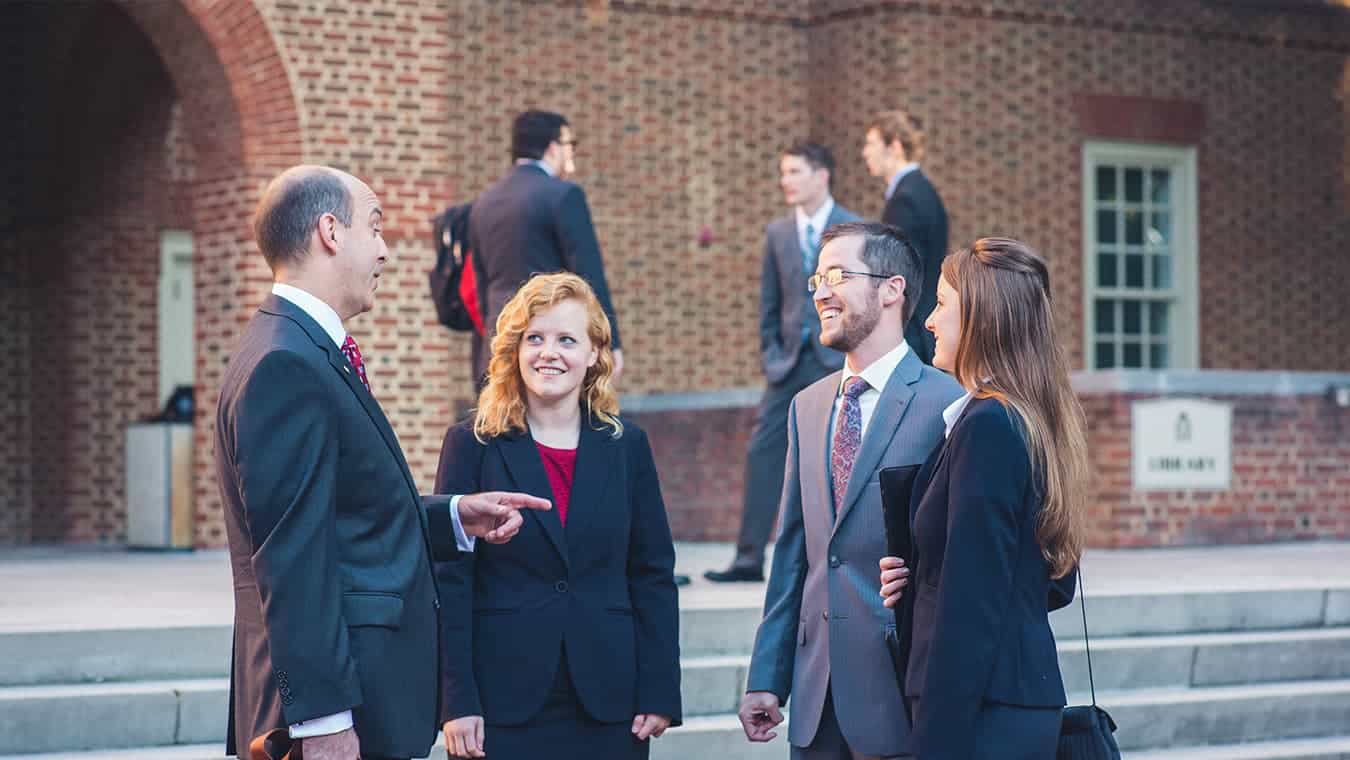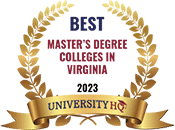
M.A. in Government – International Relations
Think Globally. Lead Strategically.
Are you intrigued by America’s role in the world? Regent’s online and on-campus Master of Arts in Government – International Relations equips you to aid in the creation and analysis of international policy to foster strategic relationships around the world.
Be a World Changer
Examine American history, the founding principles of democracy and emerging issues in light of U.S. policy and leadership on the global stage.
Access Faculty Experts
Be mentored by renowned scholars and practitioners committed to national service – and to your success.
Connect for Global Impact
Join our global alumni network of government officials, consultants and policymakers in making a difference at home and abroad.
ALIGN YOURSELF WITH EXCELLENCE
Regent has been ranked among Top National Universities by the U.S. News & World Report for four years (2019, 2020, 2022 and 2023). We have also been recognized as a Military Friendly Top 5 School by Military Friendly®, 2024-25, and among the Top 10 Best for Vets Colleges: Online & Nontraditional by Military Times, 2020. Experience the Regent difference through the Master of Arts in Government – International Relations program.
Presented from a Christian perspective, this degree is supported by our respected faculty in Virginia Beach.
Please complete the Request Information form on this page to learn more about this program.
On completing the M.A. in Government – International Relations degree, you can:
- Advise on Mid-East and Islamic political thought, as well as Asian politics.
- Develop strategic policies considering the global economy and international politics.
- Analyze the international landscape and key players to develop effective responses to global issues.
Career Opportunities
- Diplomat/Embassy Staff
- Foreign Service Office
- Non-Governmental Organization Staff
- Senate/House Committee Staff
2024-25 Semester Check-In Deadlines
All students are expected to check-in for the semester two weeks before the session start date. Students should apply, be accepted, enroll in their first courses, and confirm a plan to pay for their courses prior to this date.
| Session | Semester Check-In | Session Start Date |
|---|---|---|
| Session A | Friday, August 9 | Monday, August 19 |
| Session B | Friday, October 11 | Monday, October 21 |
| Session C | Wednesday, January 8 | Monday, January 13 |
| Session D | Friday, March 7 | Monday, March 17 |
| Session E | Friday, May 2 | Monday, May 12 |
| Session F | Friday, June 13 | Monday, June 23 |
Admissions Requirements
Step 1: Apply to Regent University
Submit your application using the Regent University Online Application.
Note: If you are unable to complete our application due to a disability, please contact our Admissions Office at 757.352.4990 or admissions@regent.edu and an admissions representative will provide reasonable accommodations to assist you in completing the application.
Step 2: Submit Your Unofficial Transcripts
Submit your unofficial transcripts to regent.edu/items.
Upon submitting your application, you will receive an email requesting authorization for Regent University to obtain your official transcripts from your U.S. degree-granting institution. International transcripts must be evaluated by a NACES, AACRAO or NAFSA approved agency.
Step 3: Submit Your Government-Issued ID
To ensure academic integrity, Regent University requires a copy of a government-issued ID. Please submit a scanned copy or photograph of it to regent.edu/items.
Please feel free to contact the Office of Admissions at 757.352.4990 or admissions@regent.edu should you have any further questions about the application process.
Note: All items submitted as part of the application process become the property of Regent University and cannot be returned.
PART-TIME STUDENTS
| Degree | Tuition Cost Per Credit Hour | Average Credit Hours Per Semester | Average Tuition Per Semester |
|---|---|---|---|
| Master of Arts (MA) | $695 | 6 | $4,170 |
| Master of Arts in Public Administration (MPA) | $695 | 6 | $4,170 |
| Doctor of Philosophy (Ph.D.) | $900 | 6 | $5,400 |
Full-Time Students
| Degree | Tuition Cost Per Credit Hour | Average Credit Hours Per Semester | Average Tuition Per Semester |
|---|---|---|---|
| Master of Arts (MA) | $695 | 9 | $6,255 |
| Master of Arts in Public Administration (MPA) | $695 | 9 | $6,255 |
| Doctor of Philosophy (Ph.D.) | $900 | 9 | $8,100 |
Student Fees Per Semester
| University Services Fee (On-Campus Students) | $850 (Fall & Spring) $700 (Summer) |
| University Services Fee (Online Students) | $700 |
Part-Time Students
| Degree | Tuition Cost Per Credit Hour | Average Credit Hours Per Semester | Average Tuition Per Semester |
|---|---|---|---|
| Master of Arts (MA) | $695 | 6 | $4,170 |
| Master of Arts in Public Administration (MPA) | $695 | 6 | $4,170 |
| Doctor of Philosophy (Ph.D.) | $900 | 6 | $5,400 |
Full-Time Students
| Degree | Tuition Cost Per Credit Hour | Average Credit Hours Per Semester | Average Tuition Per Semester |
|---|---|---|---|
| Master of Arts (MA) | $695 | 9 | $6,255 |
| Master of Arts in Public Administration (MPA) | $695 | 9 | $6,255 |
| Doctor of Philosophy (Ph.D.) | $900 | 9 | $8,100 |
Student Fees Per Semester
| University Services Fee (On-Campus Students) | $850 (Fall & Spring) $700 (Summer) |
| University Services Fee (Online Students) | $700 |
*Rates are subject to change at any time.
Whether you are a prospective student or a current student, your questions matter. Please take a few moments to skim our Frequently Asked Questions. If you cannot find the answer to your question, please contact us.




